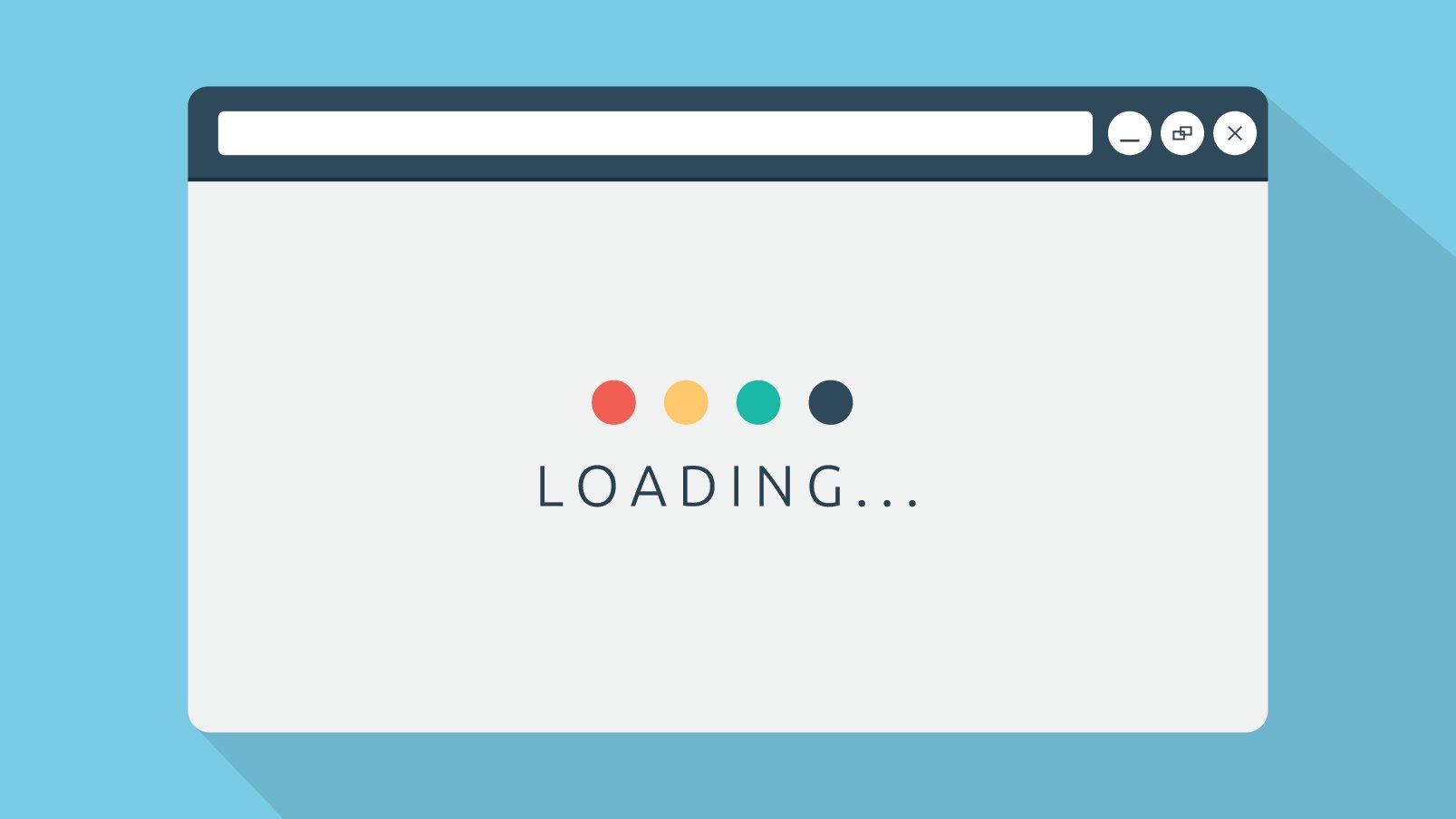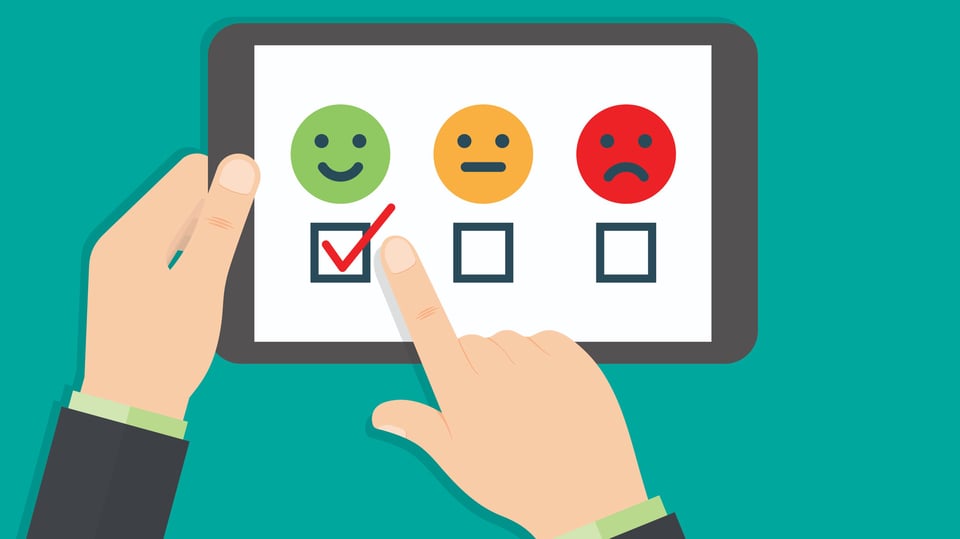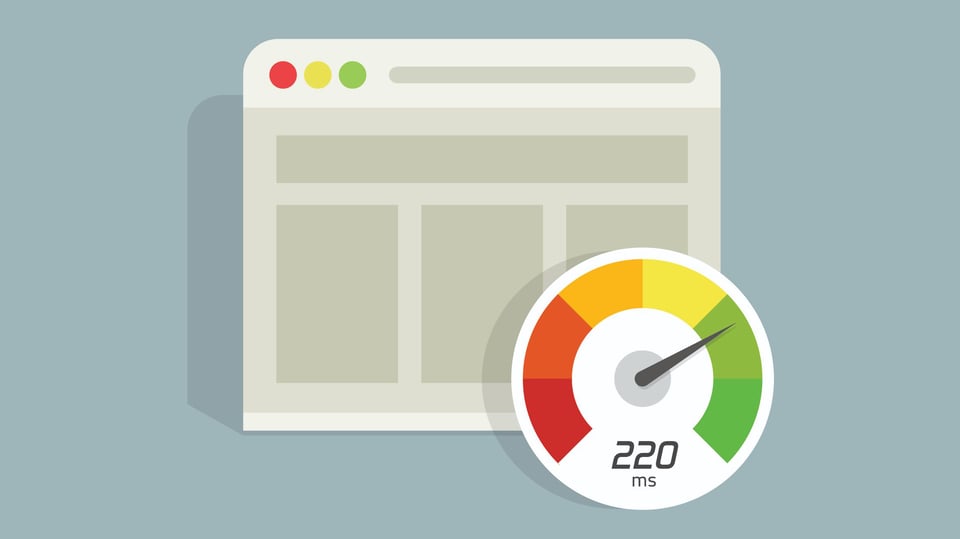Is there anyone out there who enjoys waiting for a website to load? For me, the seconds seem to crawl by, I get irritated and then I click another site that loads instantly. This is only one reason why site speed matters.
Why else is site speed important?
First impressions are everything

Sure, the design of a website makes an impression, but what about before users get to the homepage? Website load time is the first thing users notice about a site, not the pretty graphics or compelling content. Too much buffering and users might not make it to the homepage. What seems like an inconsequential five-second load time could be what stands between you and a potential sale. Those five seconds are an eternity when it comes to waiting for content.
Users expect speed

We live in a world of instant gratification, where a five-second load time is the biggest inconvenience. Don’t believe me? Pay attention to what your reaction is next time Netflix tells you it encountered an error and starts ticking down time until it reloads. Those few seconds might as well be an eternity.
This is why recording TV shows is so great. Cliffhanger before a commercial? No worries. Just fast forward.
Now, any minor wait time is viewed as an inconvenience. As users, we’ve set the bar high when it comes to speed. We don’t want it. We expect it.
It affects your user experience

There are two primary factors involved with a positive user experience:
- Does your site give visitors what they want?
- Does your site give them the information quickly?
If you have a fast site, it gets users to the information they want faster, but if it takes even a few too many seconds to load, it gives them more time to change their minds and abandon your site which can lead to a poor performance in Google results.
This goes back to my opening statement: Does anyone really think waiting for a website to load is a fun experience?
Faster sites create more conversions
Keep in mind that bounce rate is another ranking factor impacting SEO. High bounce rates often result from slow loading speeds while lower bounce rates are typically associated with faster websites. If people are bouncing because of a slow site, they’re not converting. This means missed sales. Speed sells!
Improve your site speed

Improving your site speed can seem like a daunting task, but here are five things you can do today to make your website faster:
Run a page speed test
Start with running a Google PageSpeed test. This tool does a nice job of highlighting low-hanging fruit that will help increase your page speed. In the opportunities section, Google provides various elements contributing to a slower load time, along with the amount of time it takes to perform each of them. This is a great tool to determine what some of the biggest pain points are as well as quick actions you can take to make your page run more efficiently.
Optimize images
Image sizes can make a huge difference in site speed. Generally, the larger the image the slower the site. You can counteract this by reducing the file size prior to uploading and being selective with the images you choose to display on your site.
Reducing the size of the image isn’t your only option. Reducing the quality of the image, cropping the photo and even compressing the image will help increase the efficiency of data image storage to help your site run faster.
Reduce page redirects
While page redirects are often necessary, they should be done sparingly. Redirects increase the amount of time it takes the browser to reach the correct version of the page, slowing down your website in the process.
Evaluate plug-ins
Look at the plug-ins your site currently uses and ask yourself a few questions:
- Is the plug-in still being used?
- Is it performing the way you intended?
If you answered no to either of these, get rid of the plug-ins in question. Cleaning up your plug-ins is a quick and easy way to boost your site speed. Even if you answered yes, it might be time to reevaluate the plug-ins to determine if there are smaller, faster options available.
Eliminate unnecessary bloat
As a developer, I crave simplicity when it comes to coding a website. The cleaner the code, the easier it is to develop and maintain.
I understand, a website is never 100 percent done. We are constantly making edits to ours to better enhance the user experience. But, when making these edits, it’s important to consider the best way to implement the changes.
It’s easy to go in and make a quick fix without considering the most productive way to do it. Doing this accounts for code accumulations on your site. We’re all guilty of this from time to time. Look at your code and eliminate all the unnecessary bloat to help with site speed.
In the future, take the time to evaluate the changes you intend to make before rushing to get them done.
Starting to question if your site is really as fast as you think it is? Let us take a look. We're always happy to help!



